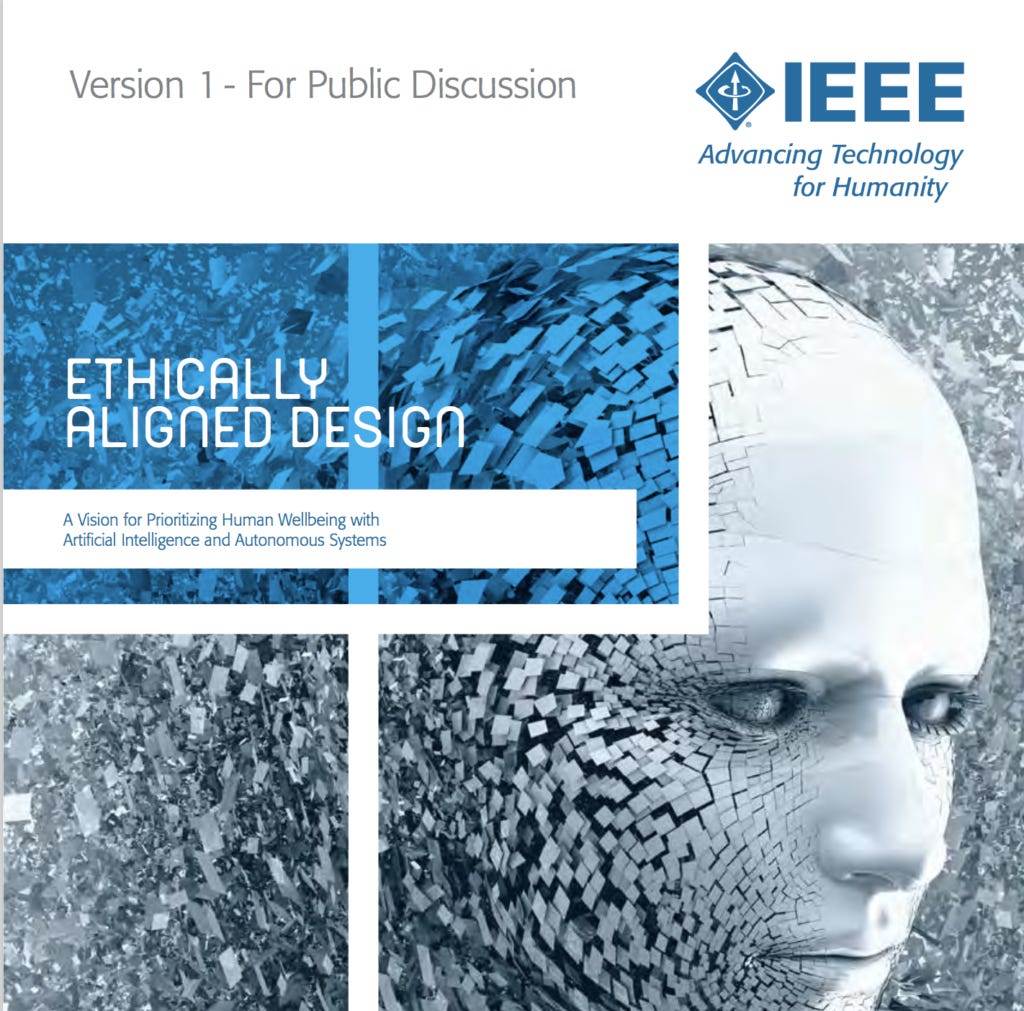IEEE quoting Aristotle
If a few years ago someone would have told me that the IEEE (Institute of Electrical and Electronics Engineers) would start an urgent discussion of the purpose of life and cite Aristotle, I may not have believed you. Now, thanks to rapid developments in AI, it has become a necessity:
We need to make sure that these technologies are aligned to humans in terms of our moral values and ethical principles. AI/AS have to behave in a way that is beneficial to people beyond reaching functional goals and addressing technical problems. This will allow for an elevated level of trust between humans and our technology that is needed for a fruitful pervasive use of AI/AS in our daily lives.
Eudaimonia, as elucidated by Aristotle, is a practice that defines human wellbeing as the highest virtue for a society. Translated roughly as “flourishing,” the benefits of eudaimonia begin by conscious contemplation, where ethical considerations help us define how we wish to live.
By aligning the creation of AI/AS with the values of its users and society we can prioritize the increase of human wellbeing as our metric for progress in the algorithmic age.




